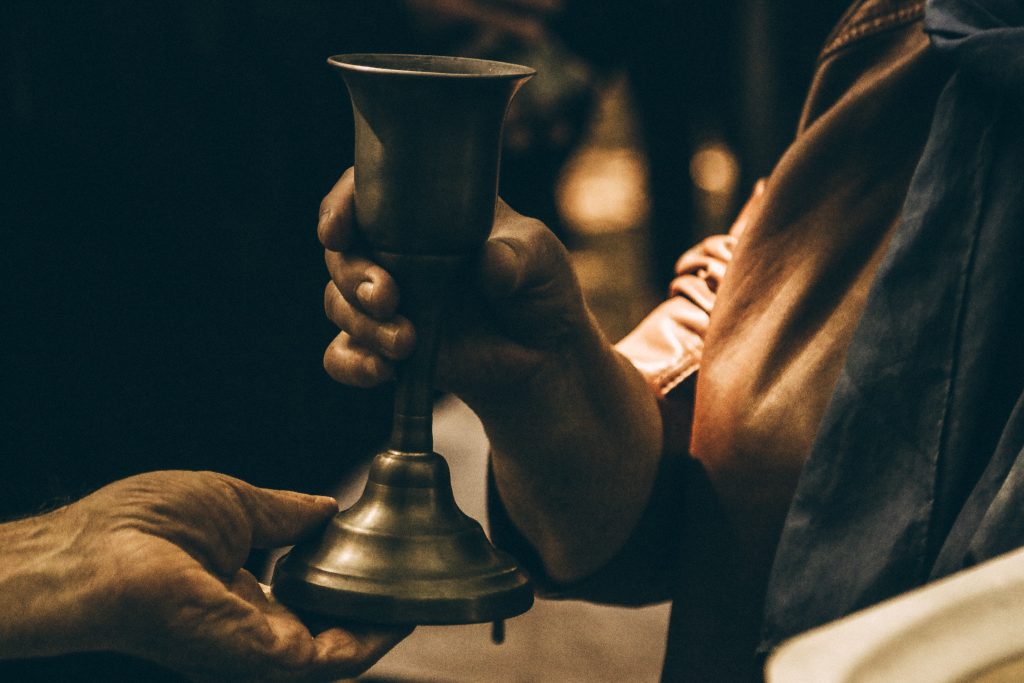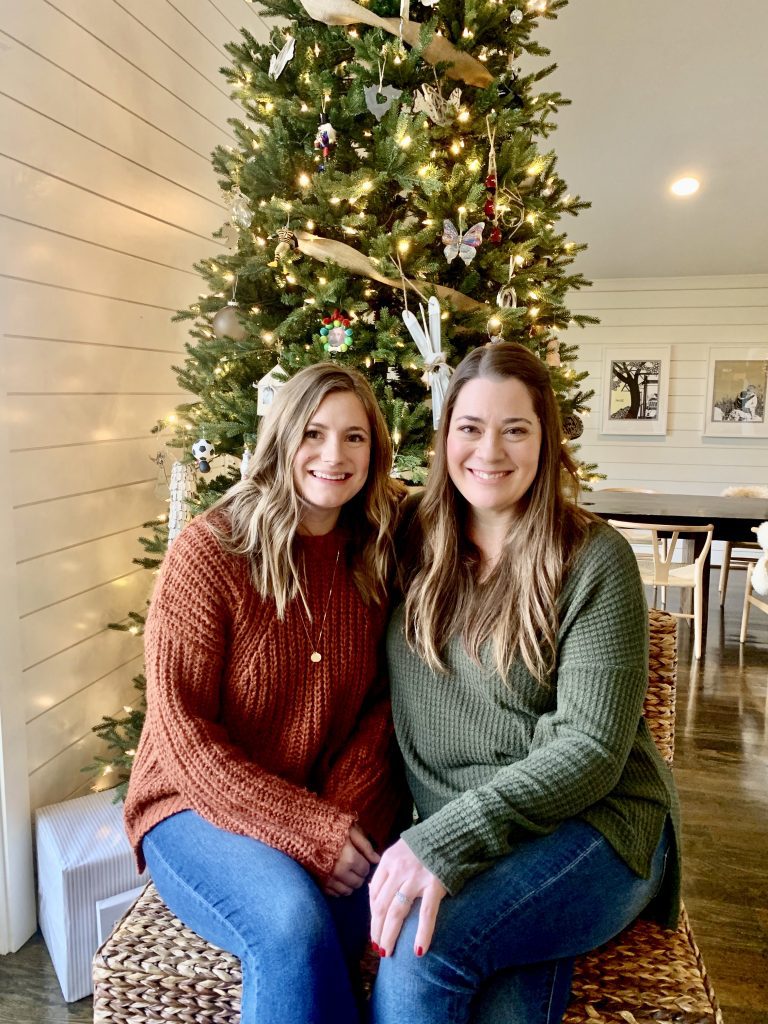Scripture for Today
45 Now from the sixth hour there was darkness over all the land until the ninth hour.46 And about the ninth hour Jesus cried out with a loud voice, saying, “Eli, Eli, lema sabachthani?” that is, “My God, my God, why have you forsaken me?” 47 And some of the bystanders, hearing it, said, “This man is calling Elijah.” 48 And one of them at once ran and took a sponge, filled it with sour wine, and put it on a reed and gave it to him to drink. 49 But the others said, “Wait, let us see whether Elijah will come to save him.” 50 And Jesus cried out again with a loud voice and yielded up his spirit. 51 And behold, the curtain of the temple was torn in two, from top to bottom. And the earth shook, and the rocks were split. 52 The tombs also were opened. And many bodies of the saints who had fallen asleep were raised, 53 and coming out of the tombs after his resurrection they went into the holy city and appeared to many. 54 When the centurion and those who were with him, keeping watch over Jesus, saw the earthquake and what took place, they were filled with awe and said, “Truly this was the Son of God!” Matthew 27:45-54 (ESV).
2 So if there is any encouragement in Christ, any comfort from love, any participation in the Spirit, any affection and sympathy, 2 complete my joy by being of the same mind, having the same love, being in full accord and of one mind. 3 Do nothing from selfish ambition or conceit, but in humility count others more significant than yourselves. 4 Let each of you look not only to his own interests, but also to the interests of others. 5 Have this mind among yourselves, which is yours in Christ Jesus, 6 who, though he was in the form of God, did not count equality with God a thing to be grasped, 7 but emptied himself, by taking the form of a servant, being born in the likeness of men. 8 And being found in human form, he humbled himself by becoming obedient to the point of death, even death on a cross. Philippians 2:1-8 (ESV)
Things to Think About
Good Friday has long been my very favorite day of the year. That might sound strange, but I thrive at night amid the dark, quiet church services where light and shadow dance together on the sanctuary walls surrounding each waxy candle. The whole theme of the day is so reflective and real, and my melancholy heart is drawn to the familiar beauty of a wounded healer. A suffering savior.
This year, though, I find myself resisting the story altogether. It isn’t that I disbelieve or don’t find it meaningful, but it’s just so…heavy. Good Friday in the midst of a pandemic isn’t exactly a walk through the park (are those even allowed anymore?). I’m tired from reading daily stories about death and suffering. My heart feels spent from keeping up with the news cycle and worrying about the people I love: Wondering if we’ll all have food, if my friends can pay their rent, if the nurses will have masks. I sob imagining the lonely memorials as people bury their loved ones at a time when no one is allowed to come together; not allowed to hug or hold hands. There is so much pain all around us, and yet we are isolated. Tired. Reading the detailed account of one more death today feels like it just might break me.
Maybe you feel the same. I don’t know where your heart is today, but I can bet it is heavy. In fact, I wouldn’t be surprised if many of our prayers sound a bit like Jesus’ prayer on the cross:
“My God, My God, why have You forsaken me?”
Oof. Take a deep breath as you read those words. Can you believe they were said by JESUS, the Messiah, the King of Kings and Lord of Lords, the celebrated Christmas Babe… The Savior of the world?
My God, My God, why have you forsaken me?
This haunting prayer was a quote from and a reference to Psalm 22, a Psalm of David, which Jesus and his onlookers would have known by heart. It is an aching hymn about physical and emotional, existential suffering, crying out to God in unflinching desperation. This is a song my own heart knows all too well, and I am shaken by the knowledge that Jesus understands.
Reflecting on the details of the gory lynching of the 33 year old God-man, Jesus, might be too much for us today as we stumble our way through both the shared and solitary traumas of life during a pandemic. But maybe we can find comfort and rest for our worn-through souls by knowing that whatever the details of our own reality right now: God understands.
Jesus showed us on the cross that he is not afraid of our violent terrors or hidden cries, because he cried them, too. He is not afraid of the darkness because he took darkness into himself, bearing the crushing weight of all the sin of all mankind. God is not afraid of our questions, confusion, or doubt. He is not disgusted by our shame, and he isn’t surprised or taken aback by the constant, gnawing frailty of our humanness.
In fact. He welcomes it all. He welcomes us.
The cross of Christ is an altar, a monument, a welcome sign. It is a testament of love and a dark symbol of a bright reality: Jesus came to be with us, no matter the cost us, and he understands the way we feel.
Take another deep breath, my friends:
Jesus understands, and God is near.
 About the Author: Alyssa Zimmerman, like you, is incredibly loved by God. She anxiously offers up her cynicism, fear, and mustard-seed-faith in return. Constantly amazed by grace and relieved by redemption, Alyssa pursues truth, love, justice and Jesus in the midst of disabling chronic pain which has shaped the vast majority of her life and foiled her dreams for college, career, and a family. Instead, Alyssa became a high school dropout, living in poverty and pain, forced to spend most days in bed with an icepack. Nevertheless, she is committed to the great and messy work of therapy and mental health, wishing deep-down healing and wholeness for all.
About the Author: Alyssa Zimmerman, like you, is incredibly loved by God. She anxiously offers up her cynicism, fear, and mustard-seed-faith in return. Constantly amazed by grace and relieved by redemption, Alyssa pursues truth, love, justice and Jesus in the midst of disabling chronic pain which has shaped the vast majority of her life and foiled her dreams for college, career, and a family. Instead, Alyssa became a high school dropout, living in poverty and pain, forced to spend most days in bed with an icepack. Nevertheless, she is committed to the great and messy work of therapy and mental health, wishing deep-down healing and wholeness for all.

 About the Author: Maya DaSilva is a high school junior who just got her driver’s license but rarely remembers where the keys are.
About the Author: Maya DaSilva is a high school junior who just got her driver’s license but rarely remembers where the keys are.



 About the Author, Kate Kesler:
About the Author, Kate Kesler:


